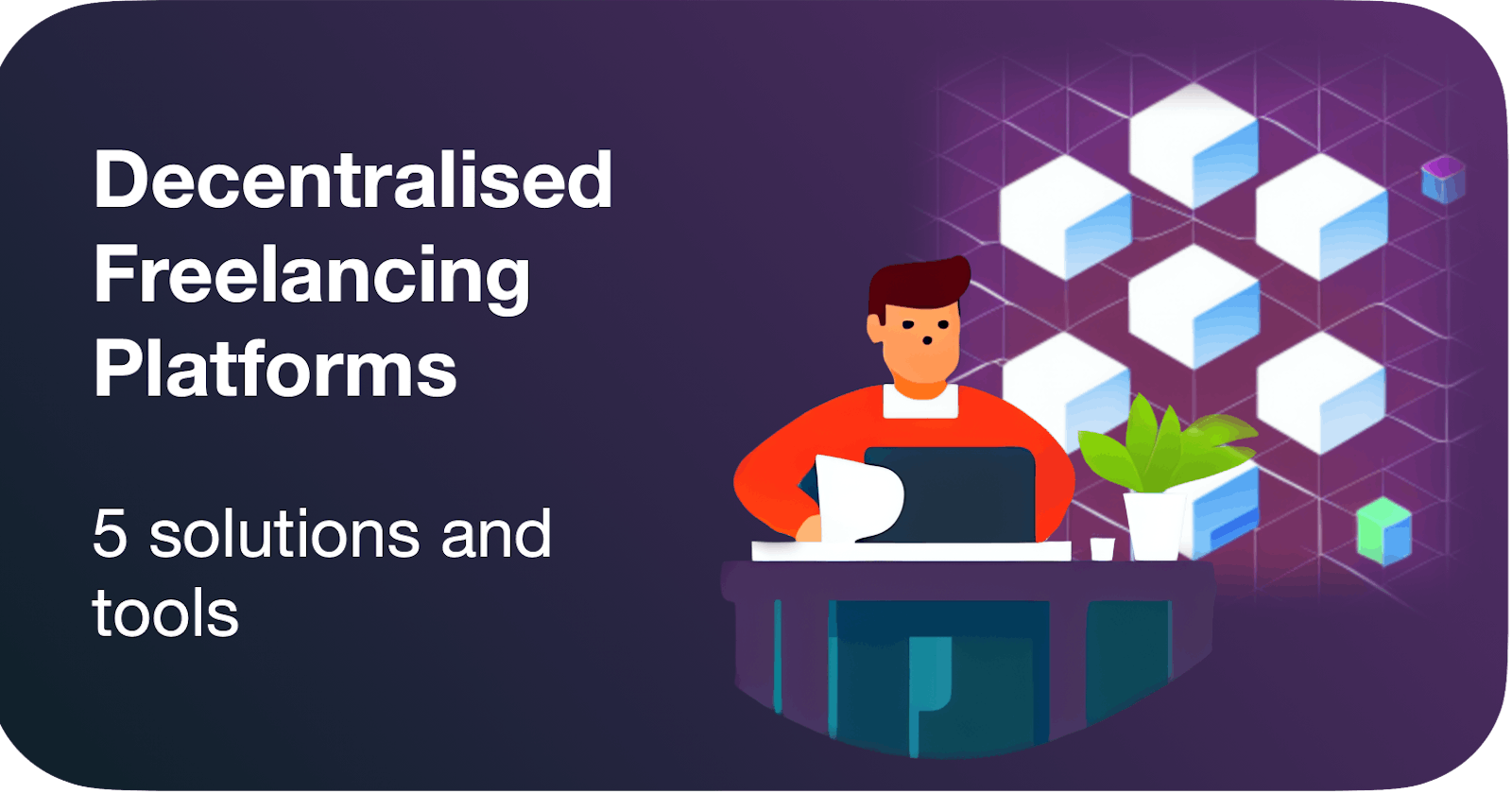Decentralized Freelancing Platforms
5 freelancing platforms on blockchain defining the future
The gig economy is evolving, and decentralized freelancing platforms built on blockchain technology are paving the way for a more transparent, efficient, and equitable freelance landscape.
Why Decentralized?
Well, many would argue that freelancing is a peer-to-peer business to start with, and crypto does that the best. In a more free economy, centred around the freelancer and the client, blockchain-based decentralized protocols would be far more equitable, dependable, secure, fair and open!
Furthermore, decentralization reduces solvency risks for payments, eases international transfers, reduces losses on commissions, and eliminates censorship risks.
In this article, we'll explore five decentralized platforms—CryptoTask, CanWork, LaborX, Latium, and ChainPact—that are revolutionizing the way freelancers and clients connect and transact.
Latium
Latium is a decentralized platform that connects employers and employees around the world securely and efficiently. The platform offers a unique feature called Instant Hire, which allows employers to quickly and easily hire freelancers for short-term projects The platform's native cryptocurrency, LATX, is used for payments, staking, and voting.
CryptoTask
CryptoTask is a decentralized freelancing platform that leverages blockchain technology to ensure transparency, security, and fairness. With features like a dispute resolution system and a reputation system for freelancers, CryptoTask aims to create a more equitable freelance economy using its native cryptocurrency, the CTASK token, for payments, staking, and voting.
CanWork
CanWork is designed to create a more efficient and cost-effective freelance economy by connecting freelancers with clients on a decentralized platform. Built on blockchain technology, CanWork offers a range of features, such as a dispute resolution system and a reputation system, to enhance the freelance experience. The platform's native cryptocurrency, the CAN token, can be used for payments, staking, and voting.
LaborX
LaborX is a blockchain-based decentralized platform that connects freelancers with clients and aims to create a fairer, more efficient freelance economy. Offering features like a dispute resolution system and a reputation system, LaborX underwent a redesign in 2022 to improve the user experience for both freelancers and clients. The platform's native cryptocurrency, TIME, is used for payments, staking, and voting.
ChainPact
ChainPact is a powerful, flexible, and open protocol for creating freelancing agreements using Gig Pact protocol. Payments are escrowed in smart contracts, providing peace of mind for both parties. ChainPact offers features like delegation, termination, and adding third parties as dispute resolution, making it a versatile solution for freelancers and clients.
Decentralized freelancing platforms on the blockchain are transforming the gig economy by offering transparency, security, and fairness for both freelancers and clients. The new-age platforms are leading the way in revolutionizing the way freelancers and clients connect, transact, and collaborate. As the gig economy continues to grow, these innovative platforms are poised to become the new standard for freelance work.

